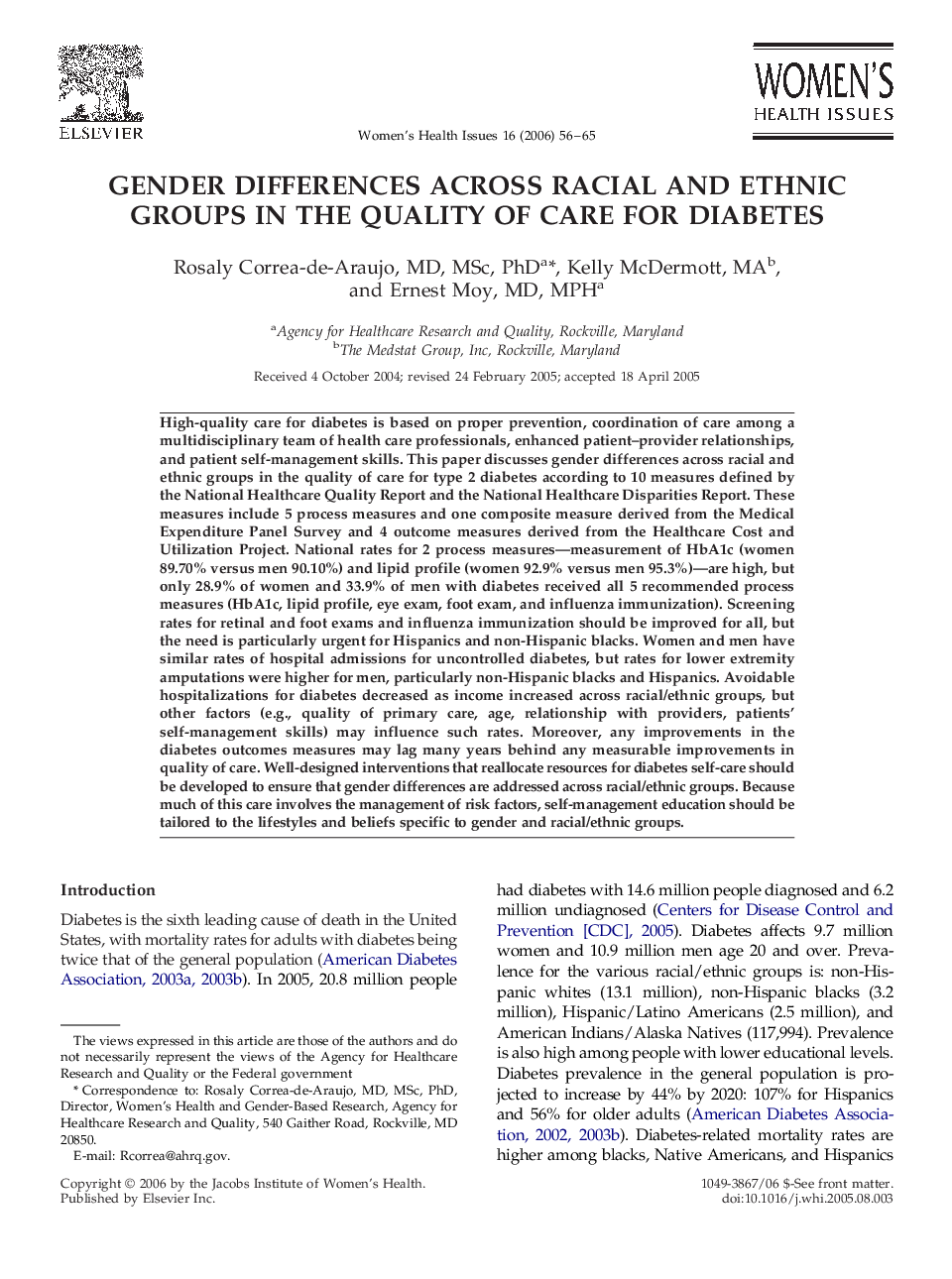| کد مقاله | کد نشریه | سال انتشار | مقاله انگلیسی | نسخه تمام متن |
|---|---|---|---|---|
| 1093784 | 952421 | 2006 | 10 صفحه PDF | دانلود رایگان |

High-quality care for diabetes is based on proper prevention, coordination of care among a multidisciplinary team of health care professionals, enhanced patient–provider relationships, and patient self-management skills. This paper discusses gender differences across racial and ethnic groups in the quality of care for type 2 diabetes according to 10 measures defined by the National Healthcare Quality Report and the National Healthcare Disparities Report. These measures include 5 process measures and one composite measure derived from the Medical Expenditure Panel Survey and 4 outcome measures derived from the Healthcare Cost and Utilization Project. National rates for 2 process measures—measurement of HbA1c (women 89.70% versus men 90.10%) and lipid profile (women 92.9% versus men 95.3%)—are high, but only 28.9% of women and 33.9% of men with diabetes received all 5 recommended process measures (HbA1c, lipid profile, eye exam, foot exam, and influenza immunization). Screening rates for retinal and foot exams and influenza immunization should be improved for all, but the need is particularly urgent for Hispanics and non-Hispanic blacks. Women and men have similar rates of hospital admissions for uncontrolled diabetes, but rates for lower extremity amputations were higher for men, particularly non-Hispanic blacks and Hispanics. Avoidable hospitalizations for diabetes decreased as income increased across racial/ethnic groups, but other factors (e.g., quality of primary care, age, relationship with providers, patients’ self-management skills) may influence such rates. Moreover, any improvements in the diabetes outcomes measures may lag many years behind any measurable improvements in quality of care. Well-designed interventions that reallocate resources for diabetes self-care should be developed to ensure that gender differences are addressed across racial/ethnic groups. Because much of this care involves the management of risk factors, self-management education should be tailored to the lifestyles and beliefs specific to gender and racial/ethnic groups.
Journal: Women's Health Issues - Volume 16, Issue 2, March–April 2006, Pages 56–65